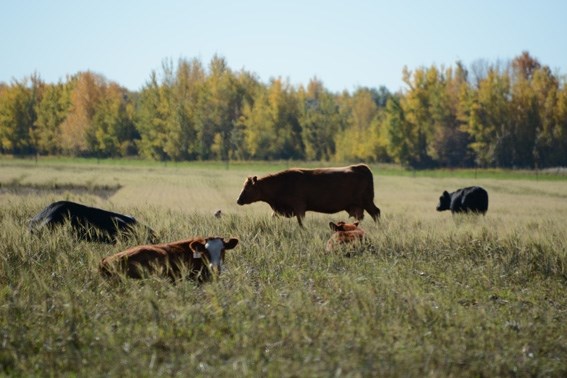After years of appeals to the World Trade Organization (WTO) the Canadian agriculture industry was finally able to get the mandatory Country of Origin Labelling (COOL) rules repealed.
Enforced since 2008, COOL required that meat derived from animals born, reared or slaughtered outside the U.S. be labeled to indicate the country or countries involved.
The Canadian livestock industry estimated that this measure was costing the agriculture industry $1 billion annually as a result of extra tracking, segregation, and associated costs for hogs and cattle exported to the U.S.
“On the grand scheme of things this is a win for the industry,” said Gordon Graves, a Zone 8 delegate with Alberta Beef. “Will it give us more dollars in our jeans? I don't know.”
Officials in the Canadian agriculture industry had been seeking to get the COOL rules repealed since they were initially enforced eight years ago. Finally, after four rulings from the WTO and Canada threatening to place heavy tariffs on U.S. imports the Americans repealed the mandatory rules.
“This is good news for Alberta's beef and pork producers,” said Deron Bilos, Alberta Minister of Economic Development and Trade. “The province and the industry have been working hard to put an end to COOL. The long-overdue decision to repeal COOL enhances Alberta's trade with the U.S. and restores markets for Alberta's beef and pork products which helps maintain jobs in our crucial agriculture sector.”
On May 18, the WTO handed down a fourth and final ruling, which reaffirmed Canada's stance that the COOL rules are discriminatory against Canadian cattle and hogs.
The ruling was six-months after the third WTO ruling on Oct. 20, 2014. It signified the beginning of the end of a fight, which saw four WTO rulings and three U.S. appeals.
Even when the WTO ruled in favour of Canada the Americans refused to budge.
It wasn't until Canada started the process to place heavy tariffs on U.S. imports, that the Americans decided to move and repeal the rules.
“Once the States realized that they were going to get hit hard by retaliation and tariffs. They realized it was going to hurt them,” said Graves.
“If you look at their Ag. Bill that COOL legislation was such a minute part of it and we drew a lot of attention to it. I believe that they realized that if it was scrutinized more by the American people there would be a backlash within.”
Graves is unsure what effect the repeal is going to have on the Canadian market, as Canada Beef has changed their strategy over the past few years in an effort to minimize the impact of the COOL legislation.
With cattle numbers down, and a lot of beef in storage, it might be a few years before the impacts of the repeal are fully seen.
“Canada Beef had done a good job trying to get around COOL,” said Graves. “Canada Beef tried to capitalize on individual cuts that had a premium in a given market.”
Regardless of how big of an impact the repeal is going to have, it won't hurt Canada now that the American labeling rules have been rescinded.
“COOL has cost producers billion of dollars and has been a major irritant in the relationship with our largest and best trading partner,” said Bob Lowe, Chair of the Alberta Beef Producers. “The return to fair and mutually beneficial trade is good for producers on both sides of the border.”
In 2014, Alberta exported approximately $1.7 billion in live cattle and beef products to the United States and $189 million in live hogs and pork products.



